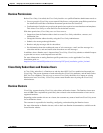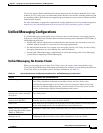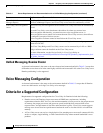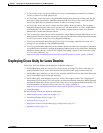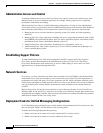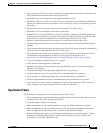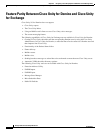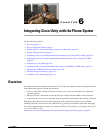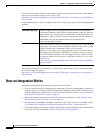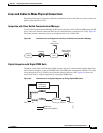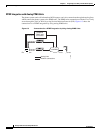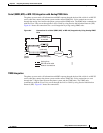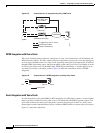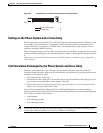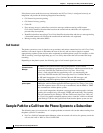
CHAPTER
6-1
Design Guide for Cisco Unity Release 5.x
OL-14619-01
6
Integrating Cisco Unity with the Phone System
See the following sections:
• Overview, page 6-1
• How an Integration Works, page 6-2
• Sample Path for a Call from the Phone System to a Subscriber, page 6-8
• General Integration Issues, page 6-9
• Integrating with Cisco Unified Communications Manager (by Using SCCP or SIP), page 6-10
• Integrating with Cisco Unified Communications Manager Express (by Using SCCP or SIP),
page 6-17
• Integrating by Using SIP, page 6-22
• Integrating with Circuit-Switched Phone Systems by Using PIMG or TIMG Units, page 6-24
• Integrating with Multiple Phone Systems, page 6-30
• Optional Integration Features, page 6-32
• Centralized Voice Messaging, page 6-34
Overview
An integration enables communication between Cisco Unity and a phone system, providing subscribers
with features that typically include the following:
• Calls to a subscriber extension that does not answer or is busy are forwarded to the subscriber
personal greeting.
• Messages left for a subscriber activate the message waiting indicator (MWI) on the extension.
• A subscriber has easy access to messages by pressing a button on the phone and entering a password.
Depending on the phone system and the integration, other integration features may be available,
including caller ID, call forward to the subscriber busy greeting, and identified subscriber messaging.
For a list of supported phone systems, see Supported Hardware and Software, and Support Policies for
Cisco
Unity Release 5.0 at
http://www.cisco.com/en/US/products/sw/voicesw/ps2237/prod_installation_guides_list.html.



